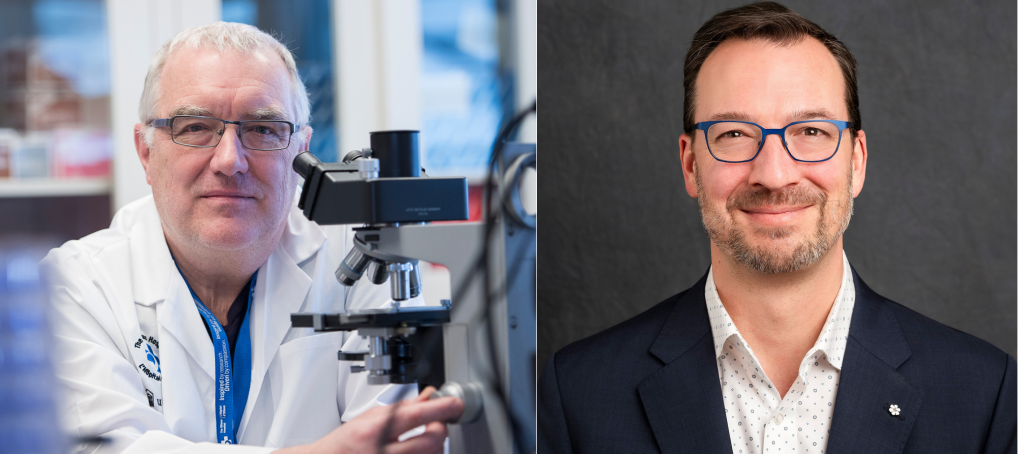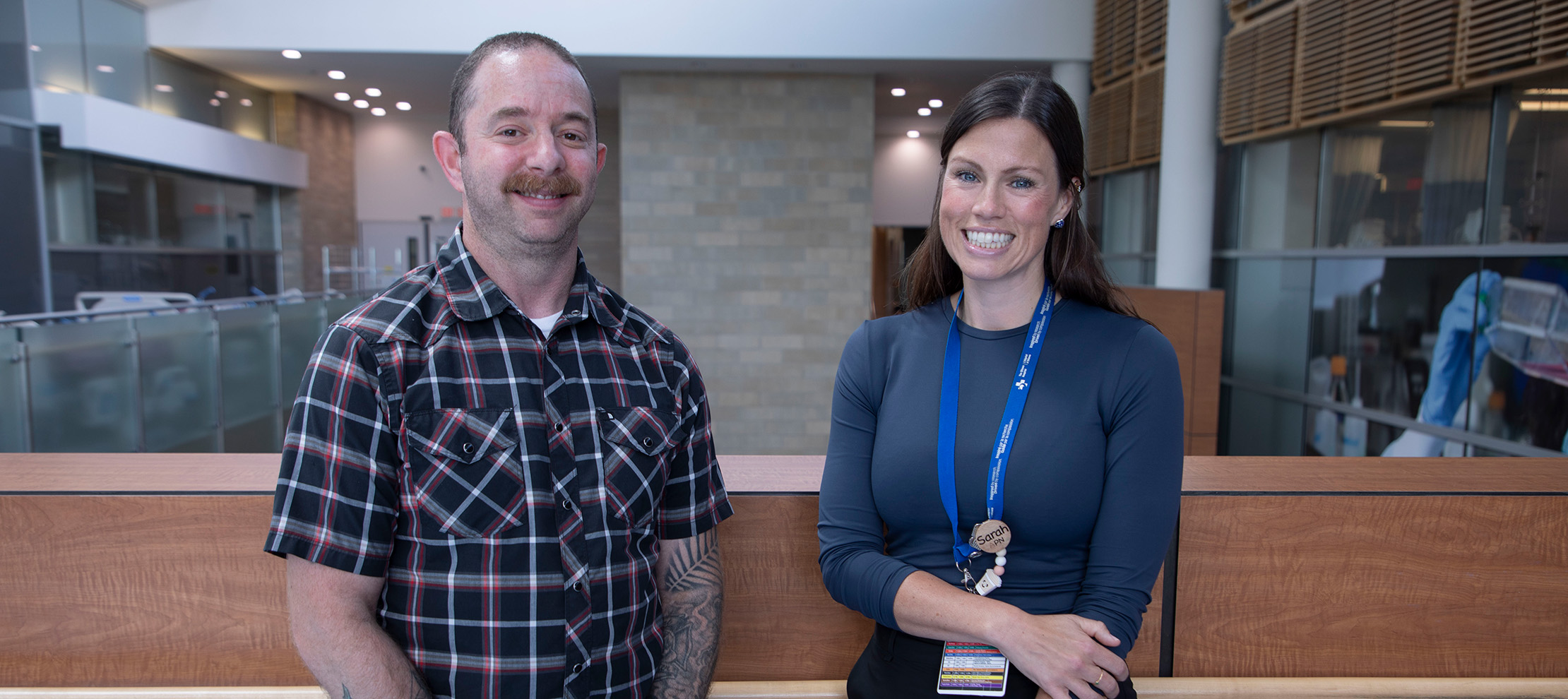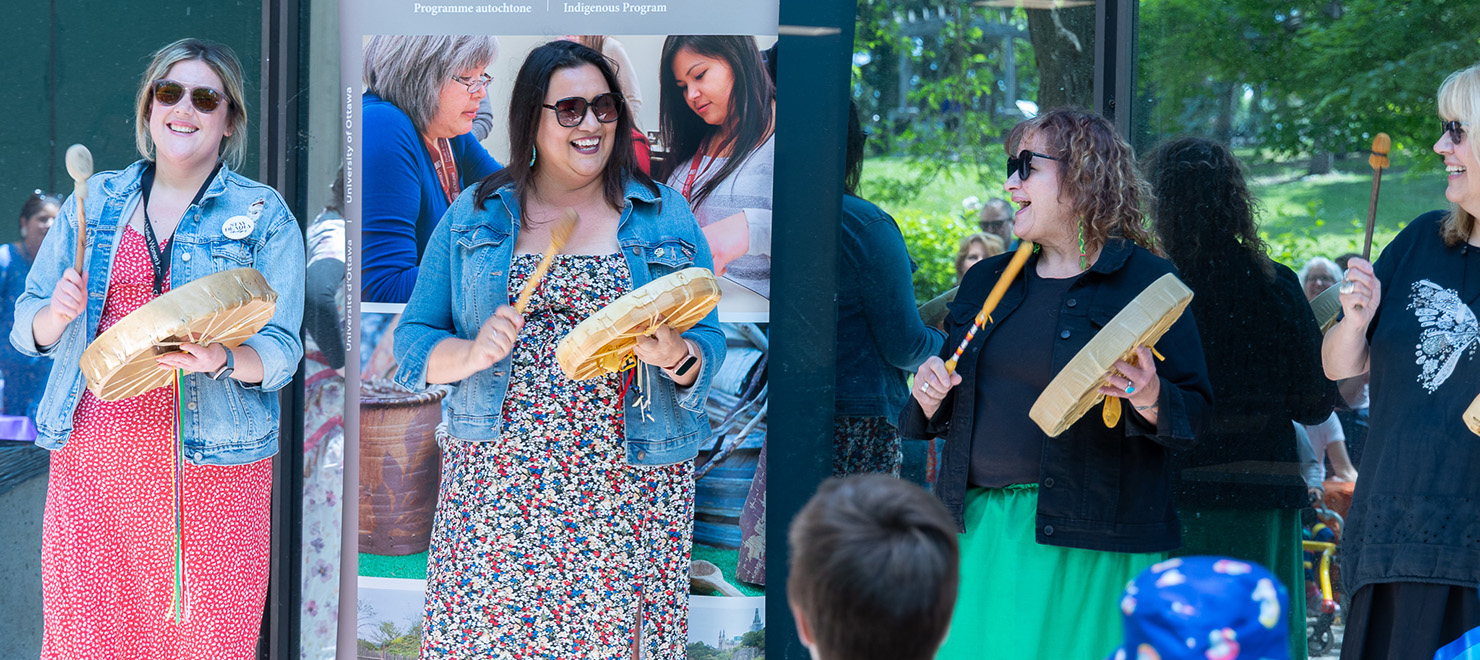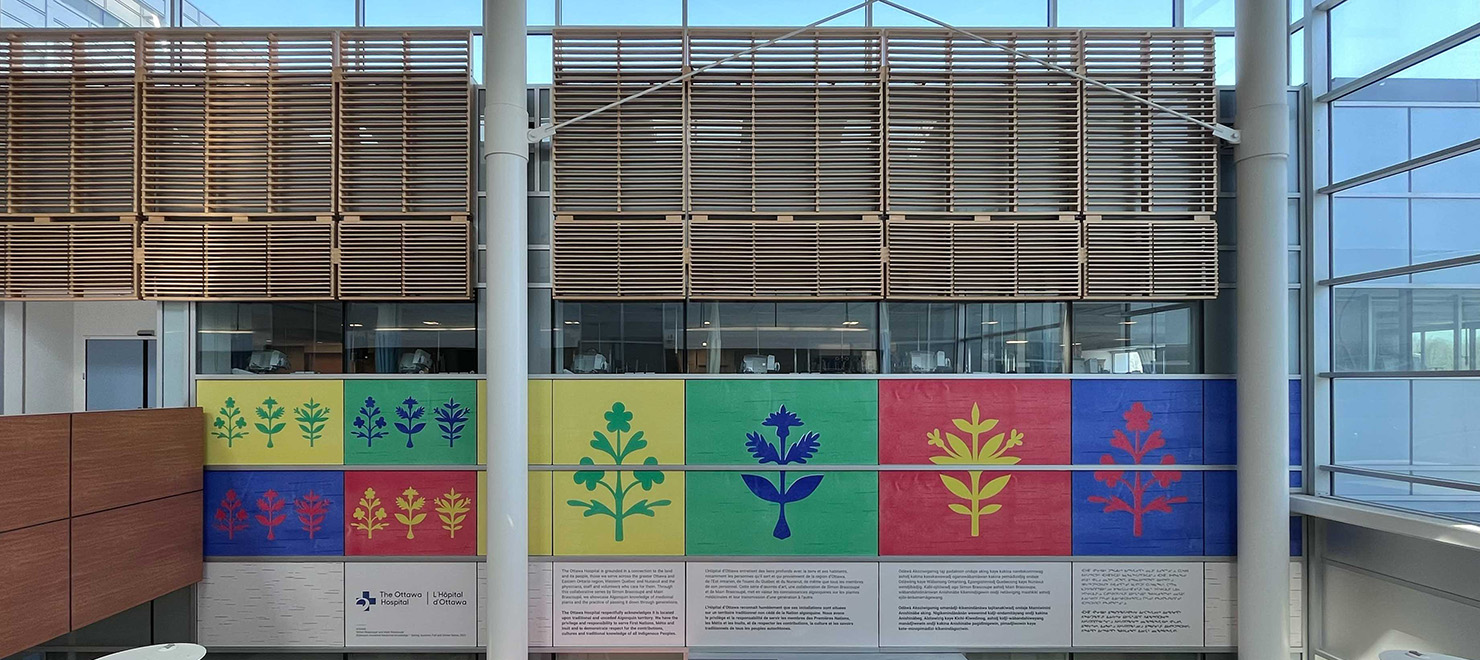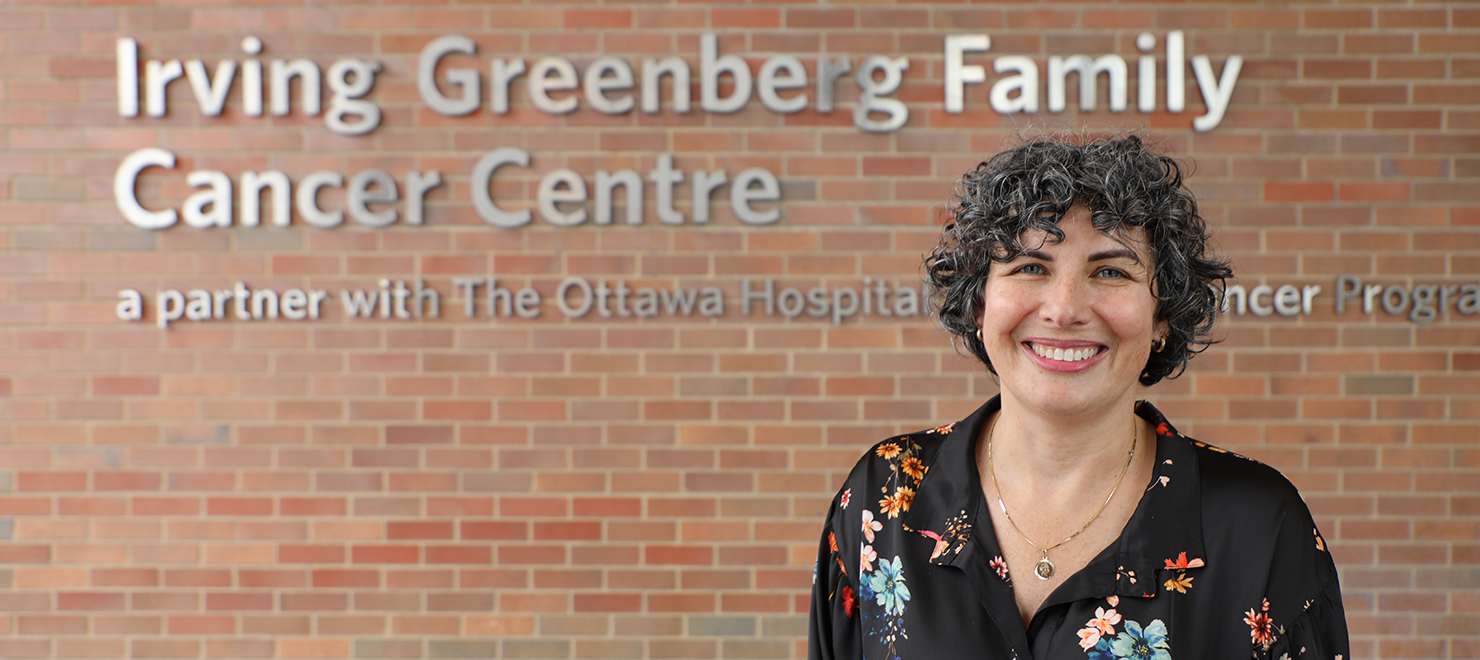
On a crisp arctic morning this May, Meeka Uniuqsarag took her place in front of a large conference room in Iqaluit. The room was filled with dozens of health-care providers from across Canada, and on the table before her was a qulliq, a traditional Inuit oil lamp.
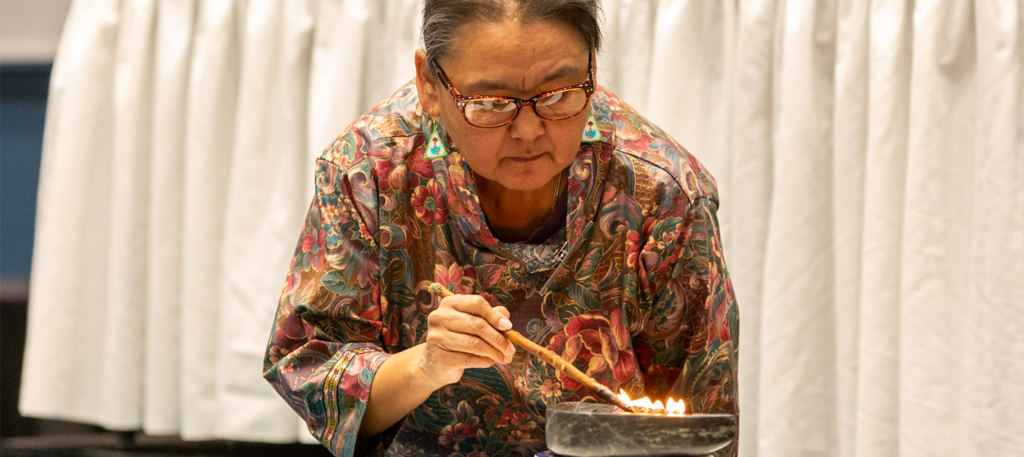
An Inuk Knowledge Keeper, Meeka explained to her audience of doctors, nurses, politicians and administrators the cultural significance of the qulliq. She shared how Inuit relied on it for warmth, to cook their food and to dry their clothes. It was so central to their way of life that it was a gathering place, a hub for meaningful conversations.
In a symbolic and fitting gesture, Meeka then lit the qulliq, which would burn for all two days of this first-ever oncology conference held in Nunavut, which was organized by a team from The Ottawa Hospital, in close collaboration with the health teams in Nunavut.
Working toward a single goal: providing cancer care closer to home
The Ottawa Hospital has been the tertiary cancer centre for the expansive Qikiqtani region in eastern Nunavut for more than 25 years. This means that when a patient can’t get the treatment they need at home in the North, their only option is to come south to Ottawa.
While The Ottawa Hospital does its best to provide culturally safe care for Inuit patients, the team also recognizes that when it comes to cancer care, there really is no place like home.
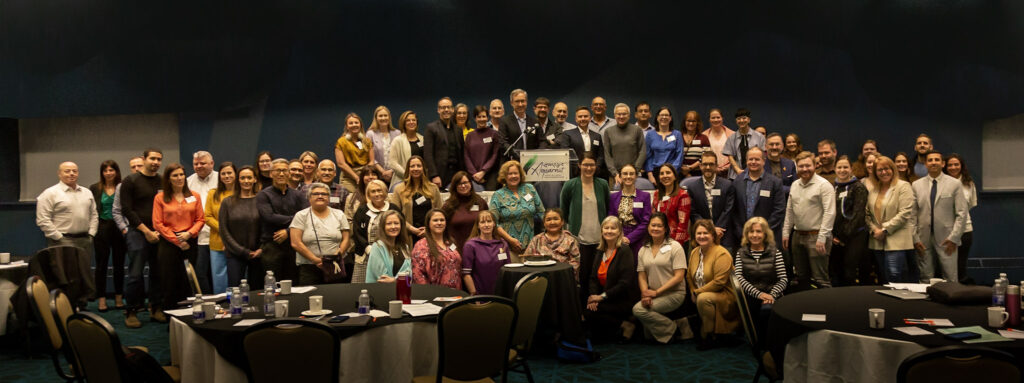
So, in May 2023, a team from The Ottawa Hospital organized a gathering of health professionals from across the country to try to figure out how to make this happen. The conference was initiated by Medical Oncologist Tim Asmis and Manager of Patient Experience Gwen Barton, with significant support from Indigenous Patient Navigator Carolyn Roberts.
Nearly 70 people attended, including Nunavut’s Minister of Health, John Main, and Chief of Staff, Francois de Wet. Presenters included health-care providers from across the country, including patients from Nunavut who shared personal stories about their experience with the cancer system.
“We wanted to create a space where health-care professionals, policy makers and communities could meet and address the unique challenges faced in the territory,” said Dr. Asmis. “And we knew the only way we could have truly meaningful conversations is if we held the meeting up North, where our patients call home.”
Charting a path forward
Throughout the conference, presentations and discussions focused on various aspects of cancer diagnosis and treatment.
“We talked about the patient journey, which for many people starts in a remote arctic community, then moves to Iqaluit. Often, the patient will be transported to Ottawa and will sometimes have to commute between communities throughout their treatment,” said Barton.
“In some cases, this time-consuming process can result in later-stage diagnosis. It can also sometimes cause patients to refuse care.”
Another challenge to care is that Nunavut is the only jurisdiction in Canada that does not have an intravenous systemic therapy treatment program for patients with cancer. However, the team at The Ottawa Hospital has worked to provide oral and subcutaneous therapies in the territory to allow patients to receive cancer treatment in their home communities.
This conference provided a forum to explore other challenges, as well as collaborative approaches to overcome barriers to care at home.

Remote consultations emerged as another potential solution. The Ottawa Hospital’s Drs. Marc Gaudet and Gad Perry were also recognized for their satellite cancer clinic in Iqaluit and the potential for this program to expand over time.
“While two days isn’t enough to answer the question of how we will bring care closer to home for patients, it feels like we have gained some momentum,” said Dr. Asmis.
“We have started to mobilize our partners in Nunavut and across the country, and we have some really good ideas. Now it’s time to start moving them forward.”
Photo Credit: All images in this story were taken by Dr. Jason McVicar.

Support patient care and research at
The Ottawa Hospital
You might also like…
Dr. John Bell and Stephen Beckta inducted into the Order of Canada
The Ottawa Hospital is proud to share that on December 31, 2025, two members of our team were inducted into the Order of Canada. Congratulations Dr. John Bell and Stephen Beckta.
New program fills gap in care for teens and young adults with cancer
For young people, a cancer diagnosis can disrupt their education, careers, relationships and family-building goals. Our Adolescent and Young Adult (AYA) Cancer Program supports AYAs on their cancer journey, complementing the care provided by their care team.
Celebrating the summer solstice and National Indigenous Peoples Day: A photo essay
The summer solstice has deep spiritual and cultural significance for Indigenous communities around the world. Last week, we joined CHEO and uOttawa for a special celebration to mark this important time of year, and to recognize the rich cultures of First Nation, Inuit and Métis Peoples.
A guide to services at The Ottawa Hospital for Indigenous patients and families
At The Ottawa Hospital, we are committed to providing culturally safe care for First Nation, Inuit and Métis patients and families. We are working with Indigenous partners to identify ways we can make your time in hospital more welcoming. Here are some of the ways we’re doing that now.
“My story doesn’t have to be your story”: New screening test better at preventing cervical cancer
“I went from being a 32-year-old new mom to a cancer patient with an incurable diagnosis.” Alicia’s journey underscores the critical role of HPV testing in preventing cervical cancer. Discover how the new HPV test can save lives and find out how to book your cervical screening appointment with our “Superscreener.”
By thinking differently, this research team is improving the lives of people with cancer
Taking a different approach to clinical trials, the REthinking Clinical Trials (REaCT) program aims to answer some of the most important and practical questions that affect both patients with cancer and our health-care system. Find out what sets REaCT apart and makes the program so special to participants like Beth.


 To reset, hold the Ctrl key, then press 0.
To reset, hold the Ctrl key, then press 0.
